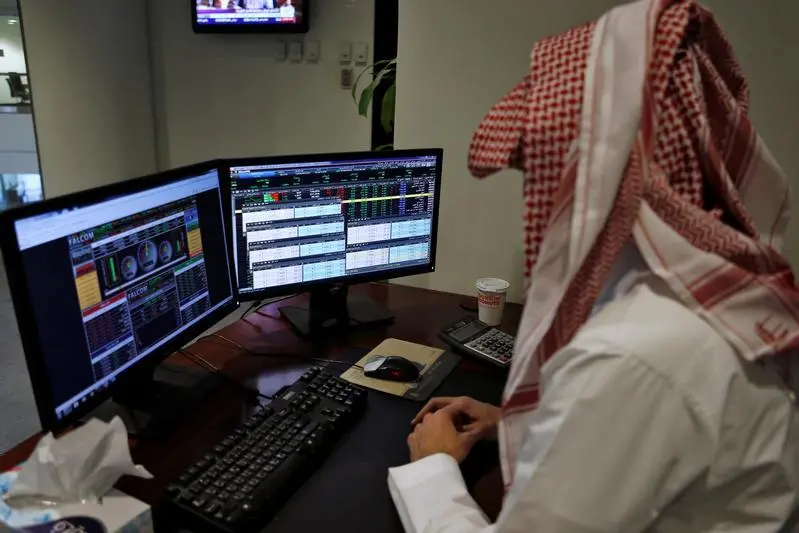PHOTO
DUBAI: Middle East funds have become less positive toward regional equities, particularly in Egypt, because of concern about instability in emerging markets globally, a monthly Reuters poll showed on Sunday.
The latest poll of 13 leading fund managers, conducted in the past week, showed 15 percent now expect to cut their allocations to regional equities in the next three months while 8 percent expect to raise them.
That is the most negative balance since May 2016. In the previous survey, taken a month ago, 38 percent expected to raise allocations and none expected to implement reductions.
Over the past couple of months, currency weakness in places such as Turkey, tumbling bond prices in countries including Lebanon and trade tensions involving the United States and China have cast a pall over emerging markets generally.
A rebound in oil prices, with Brent crude LCOc1 above $80 a barrel, and countries' currency pegs to the U.S. dollar are expected to insulate Gulf markets from the worst of the global turmoil.
Saudi Arabia's stock index has been flat in the past month and Kuwait's blue-chip benchmark BKP has risen 1.8 percent while MSCI's emerging market index has slipped by 0.8 percent.
On balance, managers are more positive towards both Saudi Arabia and Kuwait because of expected fund inflows as those markets join global equity indexes in coming months. They are also positive on the United Arab Emirates because of cheap valuations.
Nevertheless, the grim mood in global emerging markets is making funds more cautious in the Gulf. Furthermore, the region's economic growth remains modest in the wake of austerity measures to cut state budget deficits.
"Although oil prices have almost doubled since summer last year, there has been almost no growth in project spending across the region," said Akber Khan, head of asset management at Al Rayan Investment in Doha.
"In Saudi and the United Arab Emirates in particular, the jumps in the cost of living and corporate operating costs have hurt at a time of weak demand."
Meanwhile, managers have turned negative on equities in Egypt, which is not protected by a currency peg, with 31 percent now expecting to cut allocations to Egypt and 8 percent to raise them -- the most negative balance since February 2017.
"Following the steady Egyptian pound for almost two years, we expect mild weakness in the currency as higher inflation and a fiscal deficit remain," said Bader Ghanim al-Ghanim, head of regional asset management at Global Investment House in Kuwait.
He said that foreign investors' demand for Egyptian currency bonds had dropped, suggesting there could be capital outflows from the country.
Vrajesh Bhandari, portfolio manager at Al Mal Capital in Dubai, said the emerging market tumoil meant that Egyptian interest rates would have to stay higher for longer.
"The central bank cannot work in isolation from what other countries do, especially emerging markets, since they all compete for the flow of capital," he said.
"The Egyptian pound has held rather firm this year and there are concerns that the currency will depreciate, given the inflation differential."
However, Bhandari also said that Egypt is "probably still the best place in the Middle East and North Africa to find bottom-up stories that can deliver 20 to 25 percent earnings growth for a sustainable period".
"It's just that investors might like to wait until the macro clouds clear up," he added.
(Reporting by Andrew Torchia Editing by David Goodman) ((andrew.torchia@thomsonreuters.com; +9715 6681 7277; Reuters Messaging: andrew.torchia.thomsonreuters.com@reuters.net))





















